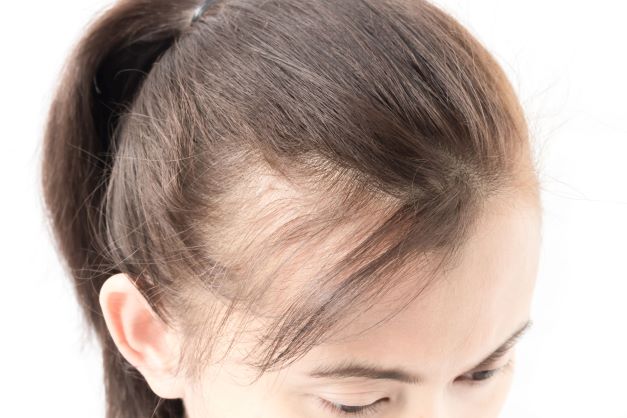Preventive Healthcare
PCOS (Polycystic Ovary Syndrome): Everything You Need to Know

Table of Contents
PCOS or Polycystic Ovary Syndrome is a condition that affects approximately twenty-three per cent of women in India and is characterised by high levels of testosterone and insulin in the blood. Often used interchangeably with PCOD (Polycystic Ovarian Disorder), PCOS is a more serious condition. It is most commonly caused by an abnormal hormone balance, such as the excessive presence of the male hormone - androgen.
Symptoms of PCOS can include irregular menstruation, fertility issues, trouble conceiving, excessive hair growth on the face, neck, and chest and acne. If left untreated, PCOS can lead to serious health problems, such as high blood pressure, diabetes and consequently, cardiac problems.
There is no definitive way to diagnose PCOS, but doctors will usually assess your symptoms and prescribe blood tests to make a diagnosis. If you think you may have PCOS, it is important to see a doctor for a diagnosis.
There is no single cure for PCOS, but there are several treatments available that can help improve the symptoms of the condition. Some common treatments include weight loss, exercise, birth control pills and hormone therapy. It is important to speak with a medical professional and chalk out the best treatment plan for you and your situation.
This article discusses in thorough detail PCOS symptoms and treatment - diagnosing it, how to manage it effectively, and help you lead a healthy life.
First, we shall start by discussing the difference between PCOD and PCOS.
Symptoms of PCOS:
Here are some identifiable markers of PCOS that will help you and the consulting doctor reach a proper diagnosis:
- Irregular or light periods.
- Excessive body hair (hirsutism). Especially in the chest, neck, face and back area.
- Infertility
- Acne or Oily skin. Additionally, dark patches of skin in your underarms, neck or below the breasts are also common symptoms of PCOS.
- Weight gain. Especially around the abdomen.
- Thinning hair.
Causes of PCOS:
The exact cause of PCOS is not known. However, there are certain contributing factors. They are as follows:
- Hereditary - genes may play a role in whether or not you acquire PCOS. If it is something that runs in your family, then it is highly likely that you may suffer from it too.
- Insulin resistance - insulin is a hormone that allows blood sugar to enter your cells. There are circumstances when the cell becomes resistant to insulin - increasing blood sugar levels and forcing the body to produce more insulin. Excessive insulin in the body may also result in more production of androgen, the male hormone.
- Chronic low-grade inflammation - many people affected by PCOS, tend to suffer from chronic inflammation. The medical practitioner needs to conduct blood tests to check for markers, such as C-reactive protein, that may indicate inflammation.
Diagnosis of PCOS:
The following are some of the procedures that will help your medical practitioner diagnose PCOS:
- Enquire about your family history and whether your other family members have experienced symptoms of PCOS.
- Make a note of all the symptoms that you are experiencing.
- Perform a physical examination to check for physical signs and symptoms of PCOS such as excessive facial hair and acne.
- The doctor may order a blood test to check for hormone levels in your blood. Some common tests are:
1. DHEA / testosterone blood test (used to measure the level of testosterone or androgen irregularities).
2. TSH test to rule out other possibilities. It measures T3 and T4 hormones, a low level of which causes menstrual changes like PCOS.
3. Lipid Panel Test since people with PCOS usually have a high level of cholesterol.
- Doctors may also order an ultrasound of your pelvic area to check for symptoms such as enlarged ovaries.
Consider visiting Metropolis Healthcare to gain access to the above-mentioned test packages. Enter your city name and book a specific test or related test package, all at once.
What are the Treatment Options for PCOS?
Your treatment for the symptoms of PCOS will vary according to your needs. The doctor will help you chalk it out. Treatment may include -
- Medication for blocking the effects of androgen. This will help prevent excessive hair growth and acne.
- If you do not have plans to conceive, then hormonal birth control may be an option.
- If you plan on getting pregnant, then drugs to aid ovulation, surgery, or IVF procedures may be helpful.
- Your medical practitioner may ask you to introduce lifestyle changes as well.
Diet for PCOS:
Here are some dietary changes you can adopt:
- Introduce more fibres. It may help fight insulin resistance by slowing down the effects of sugar. Examples are - lettuce, peppers, almonds, sweet potatoes, etc.
- Food that helps reduce inflammation may also be helpful. Examples are - salmon, sardines, olive oil, tomatoes, etc.
- Limit refined carbs as they can increase inflammation. Try to reduce food made of white flour or sugary substances.
Bottom Line:
Under proper medical guidance, treatment and lifestyle changes, Polycystic Ovary Syndrome is completely manageable. Keeping a tab on hormone or sugar levels may be necessary for people suffering from this condition. Hence, getting in touch with reliable testing centres is a necessity.
Metropolis Healthcare helps you get your blood check ups done from the comfort of your home. With 4000+ clinical laboratory tests and profiles with 200 senior pathologists and over 2000 technicians, Metropolis Healthcare offers accurate and reliable diagnostic solutions.











































